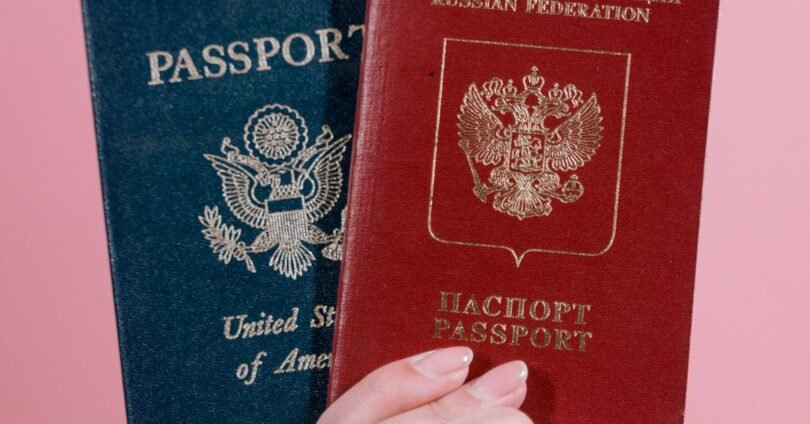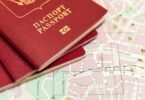Germany, with its robust economy, high quality of life, and welcoming stance toward skilled workers, is a top destination for immigrants seeking new opportunities. For many, obtaining a visa with sponsorship is the key to starting a new life in this vibrant European nation.
This detailed guide explores the various visa options available for immigrants, focusing on visa sponsorship opportunities in Germany. From job-based visas to family reunification and study pathways, this article covers eligibility criteria, application processes, required documents, and practical tips for success. Whether you’re a skilled professional, a student, or seeking to join family members, this 6,000+ word guide provides a roadmap to navigate Germany’s immigration system.
Why Choose Germany for Immigration?
Germany’s appeal as an immigration destination lies in its strong job market, world-class education system, and inclusive social policies. As Europe’s largest economy, Germany faces a shortage of skilled workers in fields like engineering, healthcare, IT, and trades, creating opportunities for international talent. The country’s aging population and low birth rate further drive demand for foreign workers, with over 1.2 million job vacancies reported in 2024, according to the Federal Employment Agency. Additionally, Germany’s commitment to diversity, affordable healthcare, and pathways to permanent residency make it an attractive choice for immigrants worldwide.
Visa sponsorship is a critical component for many immigrants, as it allows employers, universities, or family members to support your application, increasing your chances of approval. This guide delves into the types of visas that offer sponsorship, the industries and regions with the highest demand, and actionable steps to secure your visa.
Types of Germany Visas with Sponsorship Opportunities
Germany offers a range of visas tailored to different purposes, many of which include sponsorship options. Below are the primary visa types that immigrants can pursue, along with details on sponsorship, eligibility, and application processes.
1. EU Blue Card (Work Visa for Highly Skilled Workers)
The EU Blue Card is designed for non-EU nationals with advanced qualifications and a job offer in Germany. It’s one of the most sought-after visas for skilled professionals due to its pathway to permanent residency.
Overview:
- Purpose: Employment for highly skilled non-EU workers.
- Sponsorship: Requires a job offer from a German employer with a minimum annual salary of €58,400 (2025 threshold) or €43,800 for shortage occupations (e.g., doctors, engineers, IT specialists).
- Duration: Up to four years, renewable, with eligibility for permanent residency after 21-33 months (depending on German language proficiency).
Eligibility Criteria:
- A recognized university degree (or equivalent qualification) from your home country or Germany.
- A binding job offer or employment contract in a high-skill field.
- Proof of a minimum salary meeting the threshold.
- Basic German language skills (preferred but not mandatory for most roles).
- Valid health insurance coverage in Germany.
Application Process:
- Secure a job offer from a German employer willing to sponsor your visa.
- Gather required documents: passport, degree certificates, job contract, proof of health insurance, and a completed application form.
- Submit your application to the German embassy/consulate in your home country or, if already in Germany, to the local Foreigners’ Authority (Ausländerbehörde).
- Pay the application fee (€75-100, depending on the country).
- Attend a visa interview, if required, and provide biometric data.
- Processing time: 1-3 months, depending on the embassy and case complexity.
Sponsorship Details:
Employers play a key role by providing a job contract that meets salary requirements. Companies like Siemens, SAP, and BMW frequently sponsor EU Blue Cards for roles in engineering, IT, and management. The employer must verify the job cannot be filled by an EU citizen, though this is streamlined for shortage occupations.
Salary Expectations:
- Engineers: €60,000-€90,000 annually.
- IT Specialists: €55,000-€85,000 annually.
- Medical Professionals: €70,000-€120,000 annually.
Tips for Success:
- Use job platforms like StepStone, LinkedIn, or Make it in Germany to find employers offering sponsorship.
- Obtain a degree evaluation from the Central Office for Foreign Education (ZAB) if your qualifications are from outside the EU.
- Learn basic German (A1/A2 level) to enhance your application and integration.
2. Skilled Workers Visa (Section 18a/18b of the Residence Act)
Introduced under Germany’s Skilled Immigration Act (2020, updated 2023), this visa targets skilled workers with vocational training or university degrees in non-regulated professions.
Overview:
- Purpose: Employment for skilled workers in various fields.
- Sponsorship: Requires a job offer from a German employer in a recognized profession.
- Duration: Up to four years, renewable, with a path to permanent residency after four years.
Eligibility Criteria:
- A recognized vocational qualification (minimum 2 years of training) or university degree.
- A job offer matching your qualifications.
- Approval from the Federal Employment Agency (if required, typically for non-shortage occupations).
- Proof of financial stability and health insurance.
- Basic German skills (A2 or higher for most roles, though exemptions apply for shortage occupations).
Application Process:
- Secure a job offer from a German employer willing to sponsor.
- Have your qualifications recognized by the relevant German authority (e.g., IHK FOSA for vocational training).
- Collect documents: passport, qualification certificates, job contract, proof of funds, and health insurance.
- Apply at the German embassy/consulate or local Foreigners’ Authority.
- Pay the visa fee (€75-100).
- Processing time: 2-4 months.
Sponsorship Details:
Employers must provide a job contract and may need to prove a shortage of EU workers for the role. Industries like construction, manufacturing, and healthcare actively sponsor this visa due to labor shortages. For example, Germany issued over 50,000 skilled worker visas in 2024, with significant demand in nursing and trades.
Salary Expectations:
- Nurses: €35,000-€50,000 annually.
- Electricians/Plumbers: €30,000-€45,000 annually.
- IT Technicians: €40,000-€60,000 annually.
Tips for Success:
- Check the German government’s “White List” for shortage occupations to identify high-demand roles.
- Use the “Quick Check” tool on make-it-in-germany.com to assess your eligibility.
- Engage with recruitment agencies like Taledo or Adecco Germany for visa-sponsored job leads.
3. Job Seeker Visa
The Job Seeker Visa allows non-EU nationals to enter Germany to search for employment, often leading to a sponsored work visa upon securing a job.
Overview:
- Purpose: To seek employment in Germany for up to six months.
- Sponsorship: Not required initially, but a job offer with sponsorship is needed to transition to a work visa.
- Duration: Six months, non-renewable (must convert to a work visa upon securing a job).
Eligibility Criteria:
- A recognized university degree or vocational qualification.
- Proof of sufficient funds (approximately €5,600 for six months, or €947/month).
- Valid health insurance for the duration of your stay.
- Basic German or English skills, depending on the job market you’re targeting.
Application Process:
- Gather documents: passport, degree/vocational certificates, proof of funds (e.g., bank statements), health insurance, and a motivation letter outlining your job search plan.
- Apply at the German embassy/consulate in your home country.
- Pay the visa fee (€75).
- Arrive in Germany and begin your job search, attending interviews and job fairs.
- Secure a job offer and apply for a work visa (e.g., EU Blue Card or Skilled Workers Visa) before the Job Seeker Visa expires.
- Processing time: 4-6 weeks.
Sponsorship Details:
While the Job Seeker Visa itself does not require sponsorship, you’ll need an employer to sponsor a work visa once you secure a job. Companies in high-demand sectors like IT, engineering, and healthcare are more likely to offer sponsorship.
Tips for Success:
- Network through platforms like Xing or LinkedIn to connect with German employers.
- Attend job fairs like the “Connecti” job fair in Berlin or Munich.
- Prepare a German-style CV (one page, professional photo) and cover letter tailored to each job application.
4. Family Reunification Visa
The Family Reunification Visa allows immigrants to join family members legally residing in Germany, such as spouses, children, or parents.
Overview:
- Purpose: To reunite with family members in Germany.
- Sponsorship: Requires a sponsor (family member) who is a German citizen, EU citizen, or non-EU resident with a valid residence permit.
- Duration: Tied to the sponsor’s residence permit, renewable, with eligibility for permanent residency after three years.
Eligibility Criteria:
- For Spouses/Partners: Proof of a valid marriage or registered partnership, and the sponsor must have sufficient income (approximately €1,500/month for a couple) and adequate housing.
- For Children: Under 18, unmarried, and proof of parental custody if joining one parent.
- For Parents: Joining minor children with German residency, with proof of dependency.
- Basic German language skills (A1 level) for spouses/partners, unless the sponsor holds an EU Blue Card or is a highly skilled worker.
- Valid health insurance and no criminal record.
Application Process:
- The sponsor in Germany provides proof of income, housing, and residency status.
- Gather documents: passport, marriage/birth certificates, proof of German language skills (if required), sponsor’s documents, and health insurance.
- Apply at the German embassy/consulate in your home country.
- Pay the visa fee (€75 for adults, €37.50 for children).
- Attend a visa interview to verify the relationship and documents.
- Processing time: 2-6 months, depending on the case and embassy.
Sponsorship Details:
The sponsor (family member) must demonstrate financial stability and suitable accommodation. For example, a one-bedroom apartment (minimum 45m²) is typically required for a couple. Sponsors with EU Blue Cards or permanent residency face fewer language requirements for their family members.
Tips for Success:
- Ensure all documents (e.g., marriage certificates) are legalized or apostilled and translated into German.
- Use services like Lingoda or Goethe-Institut to achieve A1 German proficiency quickly.
- Check with the local Foreigners’ Authority for specific housing requirements in your sponsor’s city.
5. Student Visa with Sponsorship Potential
Germany’s world-renowned universities and tuition-free education make it a prime destination for international students, many of whom transition to work visas after graduation.
Overview:
- Purpose: To study at a German university or vocational program.
- Sponsorship: Typically self-sponsored, but universities or employers may sponsor post-graduation work visas.
- Duration: Duration of the study program, renewable, with an 18-month job search visa post-graduation.
Eligibility Criteria:
- Admission to a recognized German university or vocational program.
- Proof of sufficient funds (€11,904/year in 2025, or €992/month, typically via a blocked account).
- Valid health insurance (public or private).
- Basic German or English skills, depending on the program’s language of instruction.
Application Process:
- Secure admission to a German institution (e.g., via Uni-Assist or direct application).
- Open a blocked account with providers like Fintiba or Deutsche Bank to prove financial resources.
- Gather documents: passport, admission letter, proof of funds, health insurance, and language certificates (if required).
- Apply at the German embassy/consulate.
- Pay the visa fee (€75).
- Processing time: 4-8 weeks.
Sponsorship Details:
While the student visa itself is self-sponsored, graduates can apply for an 18-month job search visa to find employment. Employers in fields like engineering, IT, or medicine often sponsor EU Blue Cards or Skilled Workers Visas for graduates. For example, Germany issued over 70,000 student visas in 2024, with many transitioning to work visas.
Salary Expectations (Post-Graduation):
- Engineering Graduates: €50,000-€70,000 annually.
- IT Graduates: €45,000-€65,000 annually.
- Business Graduates: €40,000-€60,000 annually.
Tips for Success:
- Apply to universities in shortage fields (e.g., STEM) to increase post-graduation job prospects.
- Use DAAD.de to find English-taught programs if your German skills are limited.
- Network with employers during your studies through internships or career fairs.
6. Au Pair Visa
The Au Pair Visa allows young people to live with a German host family, learn the language, and explore career opportunities.
Overview:
- Purpose: Cultural exchange while providing childcare and light household duties.
- Sponsorship: Requires a host family registered with a German au pair agency.
- Duration: 6-12 months, non-renewable (can transition to a student or work visa).
Eligibility Criteria:
- Age 18-26 (up to 30 for some nationalities).
- Basic German skills (A1 level).
- A contract with a host family providing room, board, and a monthly stipend (€280-€350).
- Valid health insurance and no criminal record.
Application Process:
- Find a host family through agencies like AuPairWorld or AIFS.
- Sign an au pair contract outlining duties, hours (max 30/week), and stipend.
- Gather documents: passport, contract, proof of German skills, health insurance, and a motivation letter.
- Apply at the German embassy/consulate.
- Pay the visa fee (€75).
- Processing time: 2-4 months.
Sponsorship Details:
The host family acts as the sponsor, providing accommodation, meals, and a stipend. Agencies often assist with matching and visa paperwork. Many au pairs use this time to improve their German and transition to a student or work visa.
Tips for Success:
- Choose a reputable agency to avoid scams and ensure a safe placement.
- Enroll in a German language course (e.g., Volkshochschule) to improve your skills.
- Network with other au pairs for support and job leads post-contract.
Industries and Regions Offering Visa Sponsorship
High-Demand Industries
Germany’s labor market has significant shortages in several sectors, increasing the likelihood of visa sponsorship:
- Healthcare: Nurses, doctors, and caregivers are in high demand, with over 200,000 vacancies in 2024. Companies like Helios Kliniken sponsor EU Blue Cards and Skilled Workers Visas.
- Engineering: Mechanical, electrical, and automotive engineers are needed, with firms like Siemens and Bosch offering sponsorship.
- IT and Tech: Software developers, data scientists, and cybersecurity experts are sought by companies like SAP and Deutsche Telekom.
- Trades: Electricians, plumbers, and construction workers benefit from the Skilled Workers Visa, with demand in cities like Berlin and Munich.
- Hospitality and Tourism: Seasonal roles in hotels and restaurants may offer au pair or H-2B-equivalent visas.
High-Demand Regions
- Bavaria (Munich): Tech and automotive hubs with high demand for engineers and IT professionals.
- Baden-Württemberg (Stuttgart): Home to companies like Porsche and Daimler, ideal for engineering roles.
- Berlin: A startup hub with opportunities in tech, IT, and creative industries.
- North Rhine-Westphalia (Cologne, Düsseldorf): Strong demand for healthcare and logistics workers.
- Hamburg: Maritime and trade industries offer roles for skilled workers.
Challenges of Obtaining a Visa with Sponsorship
Securing a visa with sponsorship in Germany comes with challenges, including:
- Qualification Recognition: Non-EU qualifications must be recognized by German authorities, which can take 2-4 months and cost €100-200.
- Language Barriers: Many jobs require at least A2 German, though English-speaking roles are available in tech and multinational companies.
- Competition: Popular visa types like the EU Blue Card are competitive, requiring strong qualifications and job offers.
- Processing Delays: Visa processing can take up to six months, depending on the embassy and case complexity.
- Employer Requirements: Some employers are reluctant to sponsor due to administrative costs and paperwork, preferring EU candidates.
To overcome these, focus on shortage occupations, work with recruitment agencies, and ensure all documents are complete and translated.
How to Find Visa-Sponsored Opportunities in Germany
1. Job Search Platforms
- StepStone: Lists thousands of jobs, many with visa sponsorship filters.
- LinkedIn: Ideal for networking and finding multinational companies offering sponsorship.
- Make it in Germany: The official government portal for international workers, with job listings and visa information.
- Indeed Germany: Features visa-sponsored roles in various sectors.
- Job Index: Specializes in tech and engineering jobs with sponsorship.
2. Recruitment Agencies
Agencies like Taledo, Manpower Germany, and VisaPlace specialize in connecting immigrants with visa-sponsored jobs. They assist with job matching, qualification recognition, and visa paperwork.
3. Networking
- Join expat communities on platforms like InterNations or Meetup.
- Attend job fairs like the “Jobmesse” in major cities or virtual events hosted by EURES.
- Connect with German employers on Xing, Germany’s professional networking platform.
4. Company Research
Target companies with a history of sponsoring visas, such as:
- Siemens: Sponsors EU Blue Cards for engineers and tech professionals.
- SAP: Offers sponsorship for IT and software roles.
- Helios Kliniken: Recruits nurses and doctors with visa support.
- Deutsche Telekom: Hires IT and telecommunications experts.
- Amazon Germany: Sponsors roles in logistics and tech.
5. University and Au Pair Programs
- Apply to universities via DAAD.de for student visas, which can lead to sponsored work visas.
- Use au pair agencies to secure placements and explore further opportunities.
Application Tips for Success
- Prepare a Strong Application:
- Create a German-style CV (one page, professional photo, concise) and cover letter tailored to each job.
- Highlight relevant qualifications, experience, and language skills.
- Include a motivation letter for Job Seeker or Family Reunification Visas.
- Get Qualifications Recognized:
- Use the ZAB or IHK FOSA for degree or vocational qualification recognition.
- Start the process early, as it can take 2-4 months.
- Learn German:
- Enroll in courses like Goethe-Institut or Volkshochschule to achieve A1/A2 proficiency.
- English-speaking roles are available but limited to tech and multinational firms.
- Secure Sufficient Funds:
- Open a blocked account for student or job seeker visas (€11,904/year).
- Save €2,000-€5,000 for initial relocation costs, including visa fees and travel.
- Verify Employers:
- Check employer legitimacy through the Federal Employment Agency or embassy resources.
- Avoid scams by working with reputable agencies and companies.
- Apply Early:
- Submit visa applications 3-6 months before your planned move to account for processing times.
- For job seeker visas, apply in spring or fall to align with job fair seasons.
Benefits of Visa Sponsorship in Germany
- Path to Permanent Residency: EU Blue Card and Skilled Workers Visa holders can apply for permanent residency after 21-48 months, depending on language skills.
- High Salaries: Skilled workers earn competitive salaries, with engineers and doctors averaging €50,000-€100,000 annually.
- Social Benefits: Access to Germany’s public healthcare, pension system, and family support programs.
- Career Growth: Opportunities to work with global companies and advance in high-demand fields.
- Family Reunification: Sponsored visas often allow family members to join you, with access to education and healthcare.
Future Outlook for Immigrants in Germany
Germany’s immigration policies are becoming more inclusive, with the Skilled Immigration Act expanding opportunities for non-EU workers. The country aims to attract 400,000 skilled immigrants annually by 2030 to address labor shortages. Salaries in shortage occupations are expected to rise by 5-10% over the next five years, and visa processing times may decrease with digitalization efforts. Additionally, Germany’s integration programs, such as free language courses and job placement services, are expanding to support newcomers.
Practical Tips for Settling in Germany
- Learn the Language: Enroll in integration courses (Integrationskurs) offered by the Federal Office for Migration and Refugees (BAMF) to improve German skills and cultural knowledge.
- Find Housing: Use platforms like Immowelt or WG-Gesucht to find apartments or shared flats. Munich and Berlin are expensive, so consider smaller cities like Leipzig for affordability.
- Open a Bank Account: Providers like N26 or Commerzbank offer easy account setup for immigrants.
- Register Your Address: Complete Anmeldung (address registration) within 14 days of moving to Germany at the local registration office.
- Join Expat Communities: Connect with groups like Toytown Germany or Expat Hub for support and networking.
Conclusion
Germany offers a wealth of opportunities for immigrants through visa sponsorship programs, whether you’re a skilled professional, student, or family member. The EU Blue Card, Skilled Workers Visa, Job Seeker Visa, Family Reunification Visa, Student Visa, and Au Pair Visa provide diverse pathways to live and work in one of Europe’s most dynamic countries.
By securing a job offer, preparing thorough documentation, and leveraging Germany’s demand for skilled workers, you can navigate the visa process successfully. Start your journey by exploring job platforms, connecting with employers, and learning basic German to enhance your prospects.
For more information, visit official resources like make-it-in-germany.com, daad.de, or your local German embassy website. With persistence and preparation, your dream of building a new life in Germany is within reach.







